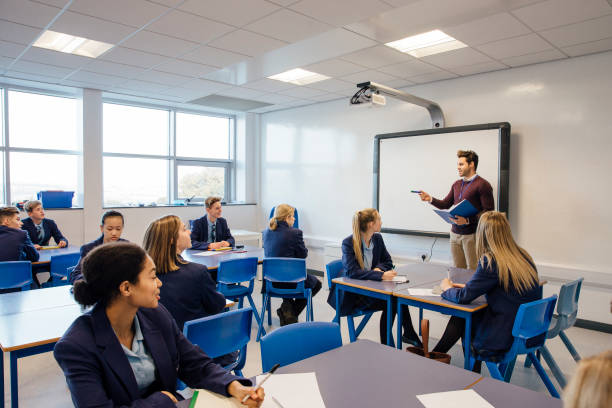
剑桥雅思3听力原文-TEST1
剑桥雅思听力原文在备考雅思过程中具有以下几个作用:
熟悉题型:剑桥雅思听力原文涵盖了多种不同的题型,包括填空、选择、匹配等,通过学习和练习这些原文,可以让考生更好地了解各种题型的要求和答题技巧。
提高听力能力:剑桥雅思听力原文中的录音素材来自真实的语言环境,包括各种口音和语速。通过反复听取和理解这些原文,可以帮助考生提高听力技能,提升对不同口音和语速的理解能力。
提供实战训练:剑桥雅思听力原文中的录音材料与真实的考试录音非常相似,通过反复练习这些原文,考生可以模拟考试环境,提升应对考试压力和时间限制的能力。
扩展词汇和语言知识:剑桥雅思听力原文中所涉及的主题广泛,涵盖了科学、社会、文化等各个领域。通过学习这些原文,考生可以扩大词汇量,了解不同领域的专业术语和表达方式,提升自己的语言水平
一起来看剑桥雅思3听力原文-TEST1
SECTION 1
JANICE: Hello ... Flagstone.
JON: Oh hello; is that Flagstone Properties?
JANICE: Yes that’s right. Flagstone here. How can I help you? Example
JON: Hello. I’m ringing just to make enquiries about renting a house. My name’s Jon Anderson.
JANICE: Yes, Mr Anderson. What sort of thing were you looking for?
JON: Two-bedroomed house with garden.
JANICE: Well. .. yes, sir, that shouldn’t be any problem ... just to let you know that our main areas, the main areas
we deal with, are the city centre itself...
Ql
JON: City centre ... uh-huh.
JANICE: And the north suburbs.
JON: Oh well... we were most interested in the Northern areas actually.
JANICE: Right... yes... What sort of price were you thinking of?
JON: Well... could you give me some idea?
JANICE: Certainly. It really ranges from £250 per month.
Q2
JON: Only £250?
JANICE: Yes, to about £500 depending on a number of different factors.
JON: What does it depend on?
JANICE: Well, obviously the quality of the area. And then whether there’s a garden.
Q3
JON: Well, as I said, we’d want a garden.
JANICE: And a garage pushes up the price.
JON: Right... well, we wouldn’t necessarily need one. I think about £350 a month
would be our limit.
JANICE: OK. Well.. . would you like to have a look at a couple of properties, sir?
JON: Yes, that’d be great.
JANICE: Looking at our files ... I think we’ve got two which might suit you ...
JON: Hang on. I’ll just get a pen. Right.
JANICE: OK. Well, there’s one on West Park Road which is £325 a month.
Q4
JON: Are the bills included?
JANICE: Well, that one just includes the water bill.
Q5
JON: OK, right.
JANICE: And the second house is in Tithe Road. I’ll just spell that for you ... OK?
JON : Yep.
JANICE: T-I-T-H-E Road.
JON: Got that. And how much is that one?
JANICE: That’s £380.
JON: 380. Is that including water?
JANICE: No, I’m afraid not, but it does include the telephone rental.
Q6
JON: Oh well, that’s not too bad then. So,. ..
JANICE: So, when would you be available to see them?
JON: Well, I’ll be in town next week . . . say . . . Thursday?
JANICE: No, I’m sorry we don’t have any availability for Thursday. How about Wednesday afternoon? Q7
JON: OK. That’s fine. Would 5.00 be OK?
JANICE: Yes, fine. 5.00 it is. Just come to the Flagstone Offices.
JON: Oh, before I forget. What sort of things do I need to get done ... to rent with you?
JANICE: Well, the most important thing is a letter from your bank ...
JON: NO problem . . .
JANICE: And then a reference letter from your employer.
Q8
JON: Yes, that’s OK.
JANICE: Great, and then we would need you to give 2 weeks’ notice of moving in ...
Q9
JON: Right... 2 weeks’ notice. And what about a deposit?
Q10
JANICE: That’s one month’s rent, whatever the amount is.
JON: OK. One month. Is that it?
JANICE: No, sorry, one more . . . you will have to pay for the contract.
JON: Oh yes. I’d forgotten about that. OK, fine. So I’ll start arranging those, and I’ll . . .
JANICE: ... I’ll see you next week.
JON: Yes. Thanks very much. Bye.
JANICE: Goodbye.
SECTION 2
MRS SMITH: Hello, Mrs Sutton. Come in. How are you settling in next door? Have all your things from Canada
arrived yet? I thought I saw a removals van outside your house yesterday afternoon.
MRS SUTTON: Yes. They came yesterday. We spent all day yesterday arranging them. It’s beginning to feel a bit
more like home now.
MRS SMITH: That’s good. Look, come in and sit down. Are you alright? You look a bit worried.
MRS SUTTON: Well, I am a bit. I’m sorry to bother you so early, Mrs Smith, but I wonder if you could help me.
Could you tell me how I can get hold of a doctor? Our daughter, Anna, isn’t very well this morning
and I may have to call somebody out. She keeps being sick and I am beginning to get a Q11
bit worried. I just don’t know how the health system works here in England. All I know is that it’s
very different from ours back in Canada.
MRS SMITH: Well, I don’t know really where to start. Let me think. Well, the first thing you have to do is find a
family doctor - sometimes we call them general
practitioners as well - and register with him or her. If you live here, you’ve got to be on a doctor’s
list. If you’re not, things can be a bit difficult. Nobody will come out to you if you’re not
registered. Anyway, they work in things called practices. Sort of small groups of family doctors
all
Q12
working together in the same building. Now what you’ve got to do this
morning is register with one of them.
There are two practices near here, so we’re quite well off for doctors in this part of Manchester.
There’s the Dean End Health Centre about ten minutes’ walk away and there’s another practice in
South Hay. That’s about five minutes away going towards the town centre. We’re registered at the
Dean End one, but they’re both OK. There are about six doctors in
Q13
our practice and four in the other. So ours is quite big in comparison.
QI4
And the building and everything’s a bit more modern. South Hay is a bit old-fashioned but the
doctors are OK. Their only problem is that they
Q15
don’t have a proper appointment system. Sometimes you have to wait for ages there to see
someone.
Anyway, you go to the receptionist in whichever health centre and ask her to register you with a
doctor there. You have to fill in a form, but it doesn’t take long. Ours is called Dr Jones and we’ve
been going to him for years - ever since we moved here fifteen years ago. I wouldn’t say he’s
brilliant but I suppose he’s alright really. We’re used to him now. They say Q16 he’s very
good with elderly people, but he does tend to get a bit impatient with children. Listen, the one
who’s supposed to be really good with small children is Dr Shaw. I’ve heard lots of people say
that. She’s young and she’s got small children of her own. So you could try registering with her.
And if her list is full, I heard somebody say the other day that there’s a really nice young doctor at
South Hay, a Dr Williams. He holds special
Q17
clinics for people with back trouble. But that’s not really your problem, is it?
-------------------------------------------------------------------------------------------------------------
MRS SMITH: If you want a doctor to visit you at home, you have to ask for a home visit. You’re supposed to do
that before 10.30 in the morning, but obviously, if it’s an emergency, you can phone at any time,
night or day. It might not be your doctor that comes, though. It’s quite often one of the other
doctors in the practice. It doesn’t really seem to make much difference.
Otherwise you make an appointment to see your doctor at the health centre. You usually get seen
the same day. Not always of course, but usually, as I say. They hold surgeries between 9 and 11.30
every weekday,
Q!8
and from 4 to 6.30 Monday to Thursday. Saturdays are only for emergencies.
When the doctor sees you, he gives you a prescription. He writes what medication you need on it
and you take it to a chemist’s shop. There’s one opposite the centre.
If it’s for a child under 16, you don’t have to pay. So if it’s for Anna. there’s no problem. The same
thing goes if you’re unemployed or retired,
Q19
or if you’re pregnant. Just as well because it’s not cheap. You pay the same
price for each item the doctor has prescribed. At the moment it’s
Q20
something like £5 per item. So you pay for the medication but the consultation with the doctor
doesn’t cost you anything. It’s completely free as long as you’re a resident here. You’re going to be
here for three years, aren’t you? So there shouldn’t be any question of you paying anything to see
the doctor. So that’s one less problem to worry about.
Look, Mrs Sutton. If you want, I’ll sit with your daughter for half an hour if you want to go down to
the health centre to register. It’s no trouble really, don’t worry.
MRS SUTTON: Are you sure you wouldn’t mind? That would really help me a lot. I’ll ask them if they can send
someone round later to see Anna. I think I’ll try the Dean End Centre.
MRS SMITH: Good idea. Don’t worry about Anna.
MRS SUTTON: Right. I’ll be back as soon as I can.
SECTION 3
TUTOR: Hello. Jonathan Briggs, isn’t it?
JB: Yes, that’s right.
TUTOR: DO come in and sit down.
JB: Thanks.
TUTOR: Right. Well, Jonathan, as we explained in your letter, in this part of the
interview we like to talk through your application form .. . your experience to date, etc. .. . and then in the
second part you go for a group interview.
JB: Group interview . .. yes, I understand ...
TUTOR: So ... your first degree was in Economics?
JB: Yes, but I also did Politics as a major strand.
Q21
TUTOR: And you graduated in 1989. And I see you have been doing some teaching . ..
JB: Yes. I worked as a volunteer teacher in West Africa. I was there for almost three
Q22
years in total from 1990 to ... umm ... 1992.
Q23
TUTOR: How interesting. What organisation was that with?
JB: It’s not one of the major ones. It’s called Teach South.
Q24
TUTOR: Oh, right. Yes, I have heard of it. It operates in several African countries, doesn’t it? And what kind of
school was it?
JB: A rural co-operative.
Q25
TUTOR: Oh, a rural co-operative, how interesting ... and what did you teach?
JB: A variety of things in different years ... ummm ... I did ... with Forms 1 to 3
Q26
mainly Geography and some English with Form 5. Then in my final year I took
Q27
on some Agricultural Science with the top year . .. that’s Form 6.
TUTOR: Right. Quite a variety then . ..
JB: I also ran the school farm.
TUTOR: How interesting .. .
--------------------------------------------------------------------------------------------------------------------------
TUTOR: ... And how did you find the whole experience?
JB: I’ll be honest with you. At the end of the first year I really wanted to leave and
come home.
TUTOR: Why was that?
JB: Well. .. I was very homesick at first and missed my family ...
Q28
TUTOR: Umm ... I can quite understand that.
JB: ... and I also found it frustrating to have so few teaching resources, but I did
decide to stay and in the end I extended my tour to a third year.
TUTOR: Right. Things must have looked up then?
JB: Yes. We set up a very successful project breeding cattle to sell locally.
TUTOR: Really?
JB: And then after a lot of hard work we finally got funds for new farm buildings.
TUTOR: And you wanted to see things through?
JB: Uh-huh.
TUTOR: And is that why you want to train to teach Geography?
JB: Yes. I’ve had a couple of jobs since then but I now realise I like teaching best.
And I chose Geography because . .. because it is my favourite subject... and
Q29
also because I think it has so many useful applications.
Q30
TUTOR: Well. .. you certainly have had some interesting work experience. I’ll ask you
now to go on to the next stage of ...
SECTION 4
ANNOUNCER: Today’s Health Counsel is presented by Paula Clayburg, who is the chief Counsellor at
Liverpool’s famous pain clinic: The Wilton Clinic. Paula ...
PAULA CLAYBURG: DO you know what Prince Charles, Seve Ballesteros and Elizabeth
Taylor have in common? They all suffer from chronic back pain. In fact,
bad backs are one of the most common health problems today,
affecting people in all walks of life. The most recent available figures
show that about a quarter of a million people are incapacitated with
Q31
back pain every day.
And many sufferers don’t know the cause or the solution to their problem.
The majority of our patients at the clinic tend to be women. They are especially vulnerable
because of pregnancy but also because of osteoporosis, which I personally believe to be the major cause of problems for women. I have many women patients who say they have Q32
completely given up exercise because the pain makes them so miserable. But of course that starts up a vicious circle. Bed rest, giving up exercise and pain killers are traditional responses to back pain but, although there are many excellent drugs on the market, at our clinic we are beginning to realise the unique benefits of relaxation therapy. Other
Q33
specialists in the field make a strong case for certain types of exercise, but in our experience they are easily mishandled and can lead to more harm than good.
Now, let’s look at some of the reasons why back pain is developing into such a unique menace. In general, the body is pretty good at self-repair. A strain or a blow to a limb, though painful at the time, generally resolves itself. But the body’s response to back injury can be very counter-productive. When pain strikes, we attempt to keep the
Q34
back as immobile as possible, which makes the muscles tense up. Research shows that they often go into spasm, which causes further twisting of the spine. A vicious circle is underway.
The second mistake we often make when stricken with extreme back pain is to go to bed and stay there. Although at the clinic we recognise that a short rest in bed can be helpful ... up to two days. . . any longer
Q35
makes our back muscles become weaker and unable to hold up our spine. The pain therefore becomes worse.Another problem is being overweight. Anyone a stone or more over-
Q36
weight who already has back pain is not doing himself any favours: though it won’t actually set it off in the first place, the weight will increase the strain and make things worse. The British diet could be partially to blame for the increase in back pain: over the last ten years the average weight of men has risen by 11 lbs and of women by 9 lbs. So much for the causes and aggravations of pain. But what can WE do to help?
There are many ways in which simple day-to-day care can make all the difference. The first point to watch of course is weight. If you are overweight, a diet will make all the difference.
Also, studies have shown that just one hour sitting in a slouched position can strain ligaments in the back which can take months to heal. At the clinic we have come to the conclusion that the major cause of the problem is not with the design of chairs, as some have suggested, but in the way WE sit in them. It can be useful to get special orthopaedic
Q37
chairs, but remember the most important improvement should be in OUR posture.
Another enemy of your back is, of course, your beds. If your bed doesn’t give enough support, back muscles and ligaments work all night trying to correct spinal alignment, so you wake up with a tired aching back. Try out an orthopaedic mattress or a spring slatted bed. Research shows that both can be beneficial for certain types of back pain.
Another hazard for your back are the shock waves which travel up your spine when you walk, known as heel strike. A real find for our patients has been the shock-absorbing shoe insert. A cheap but very Q38 effective solution. And you might be better off avoiding shoes with heels higher than YA inches.
Though absolutely flat shoes can be a solution for some, others find their posture suffers. Q39
Finally a word about the state-of-the-art relief - the TENS machine -a small battery-powered gadget which delivers subliminal electrical pulses to the skin. Our experience indicates that your money is better Q40 spent on the more old-fashioned remedies.
2023年最新雅思模拟真题推荐:
| 2023雅思口语模考真题最新 |
| 2023雅思写作模考真题最新 |
| 2023雅思阅读模考真题最新 |
| 2023雅思听力模考真题最新 |
| 雅思口语模考 |
| 雅思写作批改 |
| 雅思真题资料题库PDF下载 |







